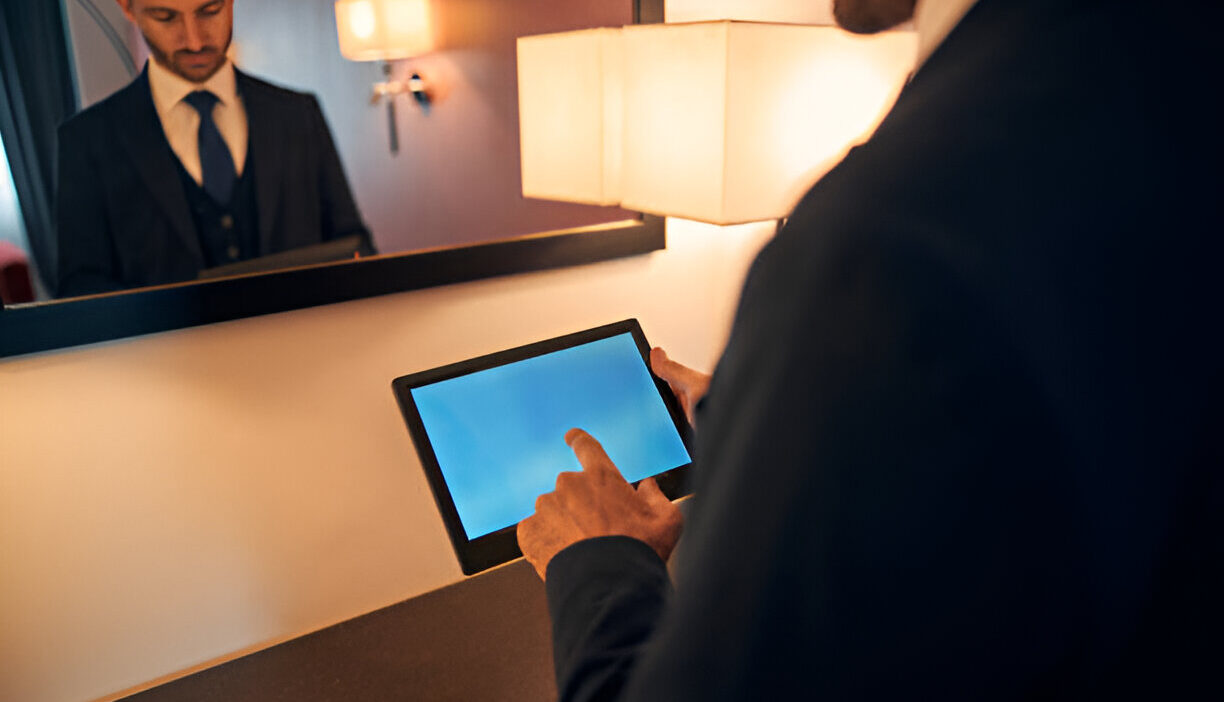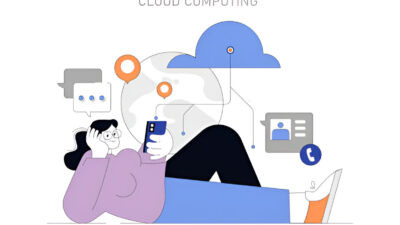Introduction: The New Age of Hospitality
The hotel sector is transforming, with the incorporation of smart technology improving both the visitor experience and the internal operations of enterprises. This shift signals a departure from traditional methods towards embracing hospitality technology solutions that offer improved efficiency and convenience. From automated check-ins to room settings customized to individual preferences, smart technology is redefining the traditional boundaries of hospitality, turning ordinary stays into personalized experiences.
Hotels that fail to adapt may be disadvantaged in an environment where customer satisfaction is paramount. Not only do guests seek comfort and luxury, but increasingly, they also demand convenience and personalization—areas where smart technology excels.
Understanding Smart Technology
Smart technology refers to the convergence of connectivity, artificial intelligence, and automation. Within the hospitality sector, this means deploying technologies like smart home devices that cater to the dynamic needs of modern guests. These can range from voice-activated assistants available in rooms to IoT-enabled environments that adjust settings like lighting or temperature based on guest preferences. The core idea is to create a seamless and interconnected experience that enhances comfort and engagement.
By integrating technology that learns and adapts, hotels can offer a new level of service that caters to the demands of tech-savvy travelers, setting themselves apart in a competitive marketplace.
Benefits for Guests
For guests, smart technology translates into a subtle and transformative convenience. It offers tailored experiences where comfort settings adjust automatically upon entry, and virtual concierges respond to requests with personalized recommendations. Studies indicate that incorporating smart technology in service sectors substantially elevates customer satisfaction levels, as it aligns with increasing consumer expectations for seamless, personalized, and rapid services.
Imagine entering a hotel room where the lighting, temperature, and even entertainment options are adjusted to your liking before you arrive. This high degree of customization makes for a more pleasant stay and builds brand loyalty, turning guests into advocates.
Advantages for Hospitality Businesses
On the business side, adopting smart technology is a game-changer in operational efficiency. Automating tedious processes and using powerful data analytics allows hospitality organizations to focus on providing great service. It lowers overhead expenses and improves resource allocation, allowing employees to focus on the most important component of hospitality: the customers themselves.
Moreover, using technology to gather and analyze guest feedback and behavior enables hotels to refine their offerings continually. This data-driven approach helps predict trends and proactively meet emerging consumer demands.
Overcoming Implementation Challenges
Despite its potential benefits, integrating smart technology has challenges. High initial costs, potential technical difficulties, and security concerns are common hurdles. Some establishments have faced reluctance from traditionalists within the industry, who may be wary of the technological upheavals.
However, phased implementations and robust training and support systems can help assuage these fears. Additionally, working with experienced tech providers can ensure a smoother rollout and consistent performance, ultimately justifying the initial investment through long-term gains.
Future Trends in Hospitality Tech
AI, machine learning, and AR/VR are becoming key to hotel strategies, signaling a smart technology future for the industry. Virtual reality will play a greater role in guest decision-making, allowing visitors to take immersive 360-degree virtual tours of hotel rooms and attractions before booking. AR features may be integrated into hotel apps or digital guides, enabling guests to access real-time information, directions, or personalized recommendations. Artificial intelligence, particularly chatbots and predictive analytics, transforms how hotels interact with guests and manage data. AI-driven personalization will enable hotels to deliver hyper-personalized service offerings, enhancing guest satisfaction and brand trust. Smart technology will also influence back-end operations through automation and IoT connectivity, monitoring energy usage, streamlining housekeeping schedules, and predicting maintenance needs. Security and privacy will be paramount as smart systems gather more guest data. Using smart technology as a strategic driver of innovation and client happiness, hospitality businesses can place themselves at the forefront of a fast-changing sector.
Conclusion: Embracing the Future
In conclusion, integrating smart technology within the hospitality sector represents a pivotal evolution rather than just a fleeting trend. These advancements, such as mobile check-in systems, smart room controls, and AI-driven customer service, profoundly impact transforming guest experiences and streamlining operational efficiency. For instance, mobile applications enhance convenience by allowing guests to manage their stay, from room selection to service requests, at their fingertips.
On the operational side, smart technology can optimize energy management systems, reduce overhead costs, and help staff respond to guest needs more promptly and effectively. As consumer expectations increase and visitors desire customized and seamless experiences, incorporating smart technology will give businesses the tools to meet and exceed these needs.
Thus, investing in these technologies is lucrative and necessary for sustaining a competitive edge in a continually changing market. By embracing smart technology, hospitality businesses can ensure they deliver exceptional service, foster guest loyalty, and ultimately secure long-term success and growth within the industry. In conclusion, integrating smart technology within the hospitality sector is not merely a trend but an essential evolution. With its ability to transform guest experiences and optimize operations, investing in these technologies will be crucial for businesses aiming to stay competitive. As customers’ expectations rise, smart technology will give the tools necessary to meet and exceed them, assuring the hotel industry’s long-term success and development.



